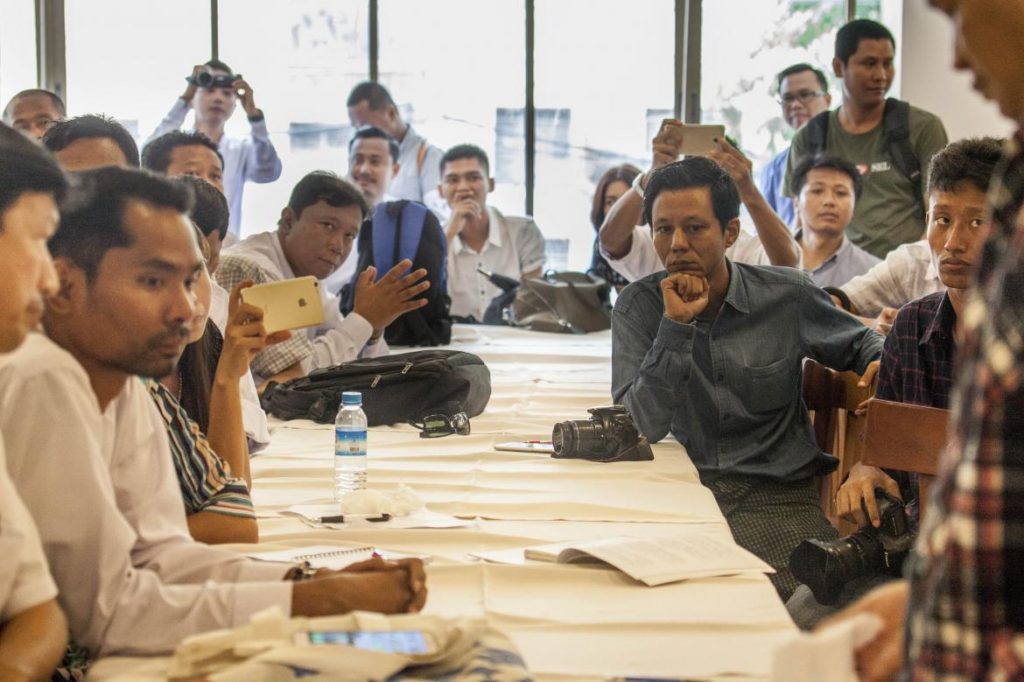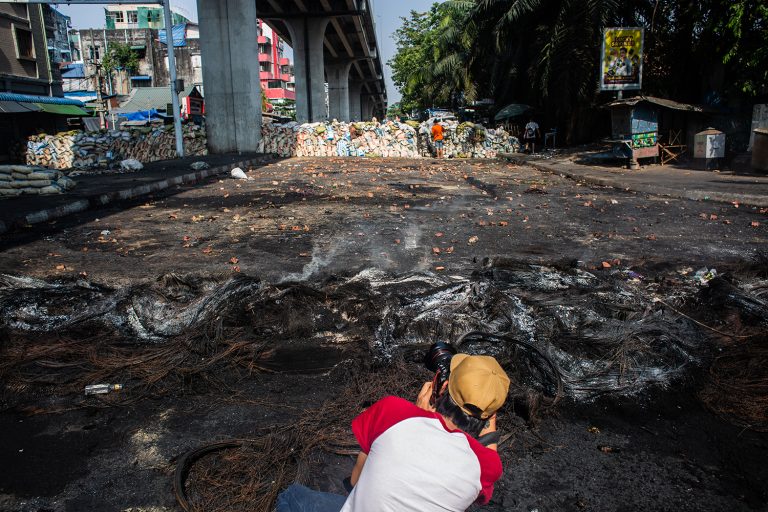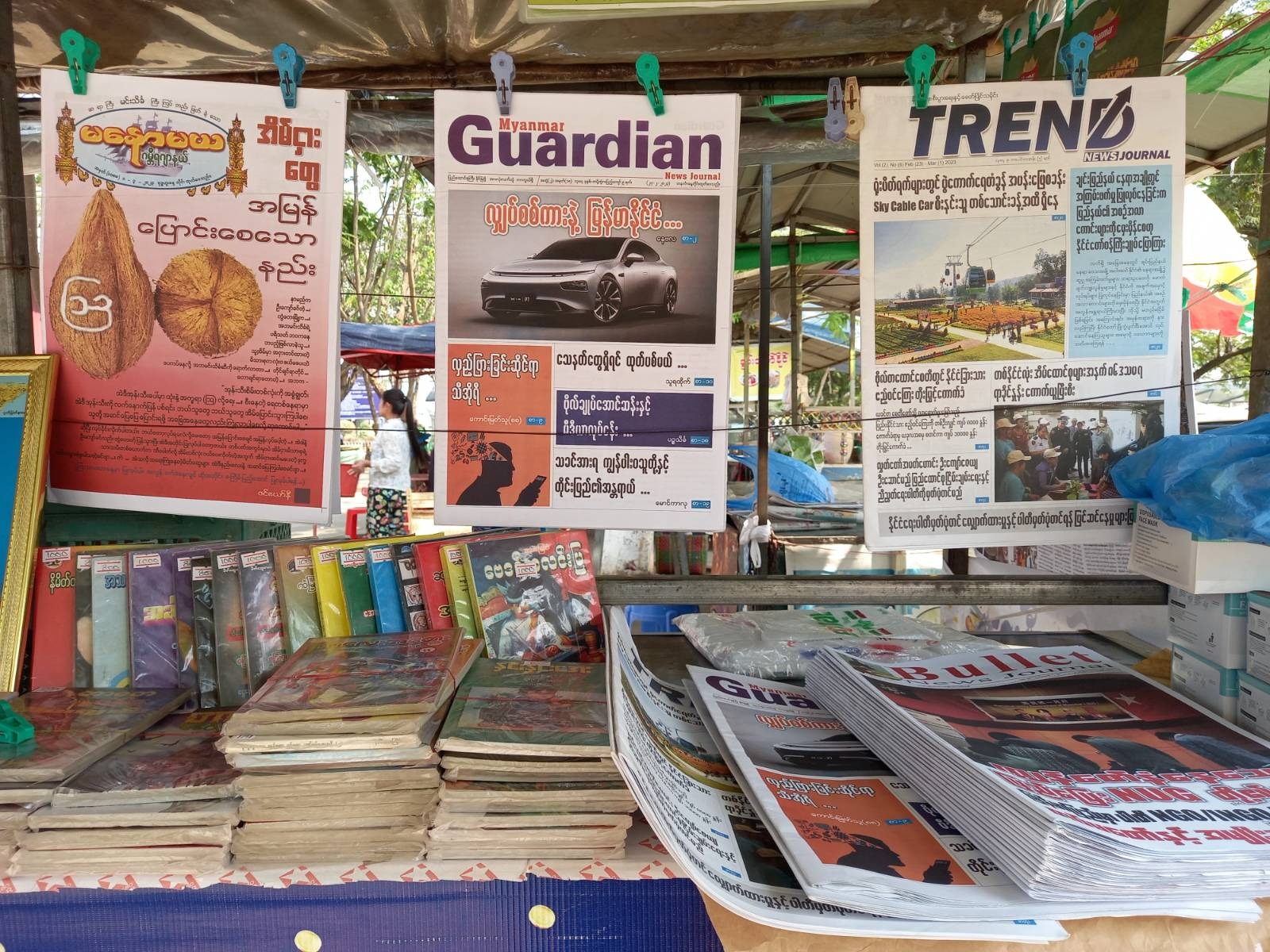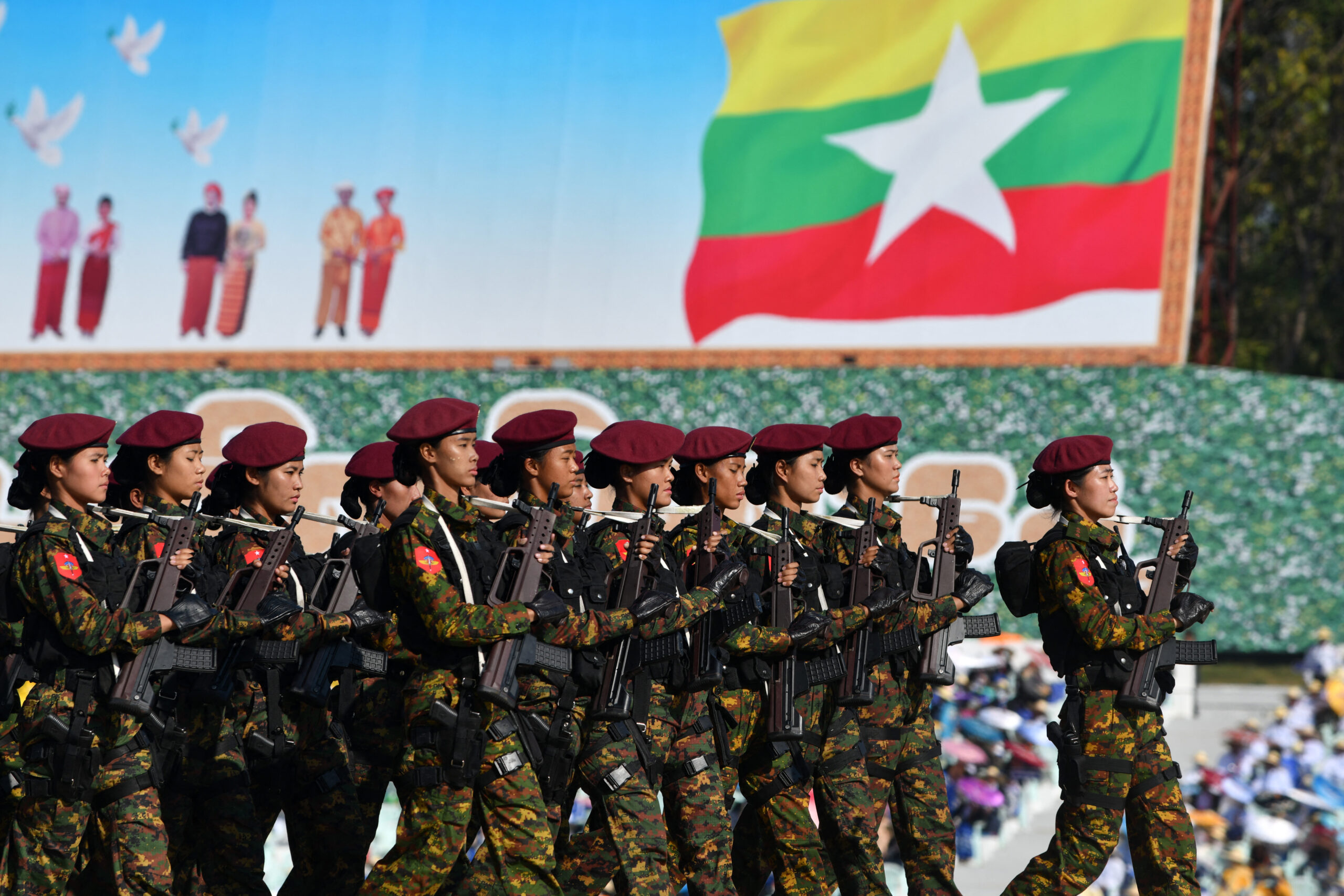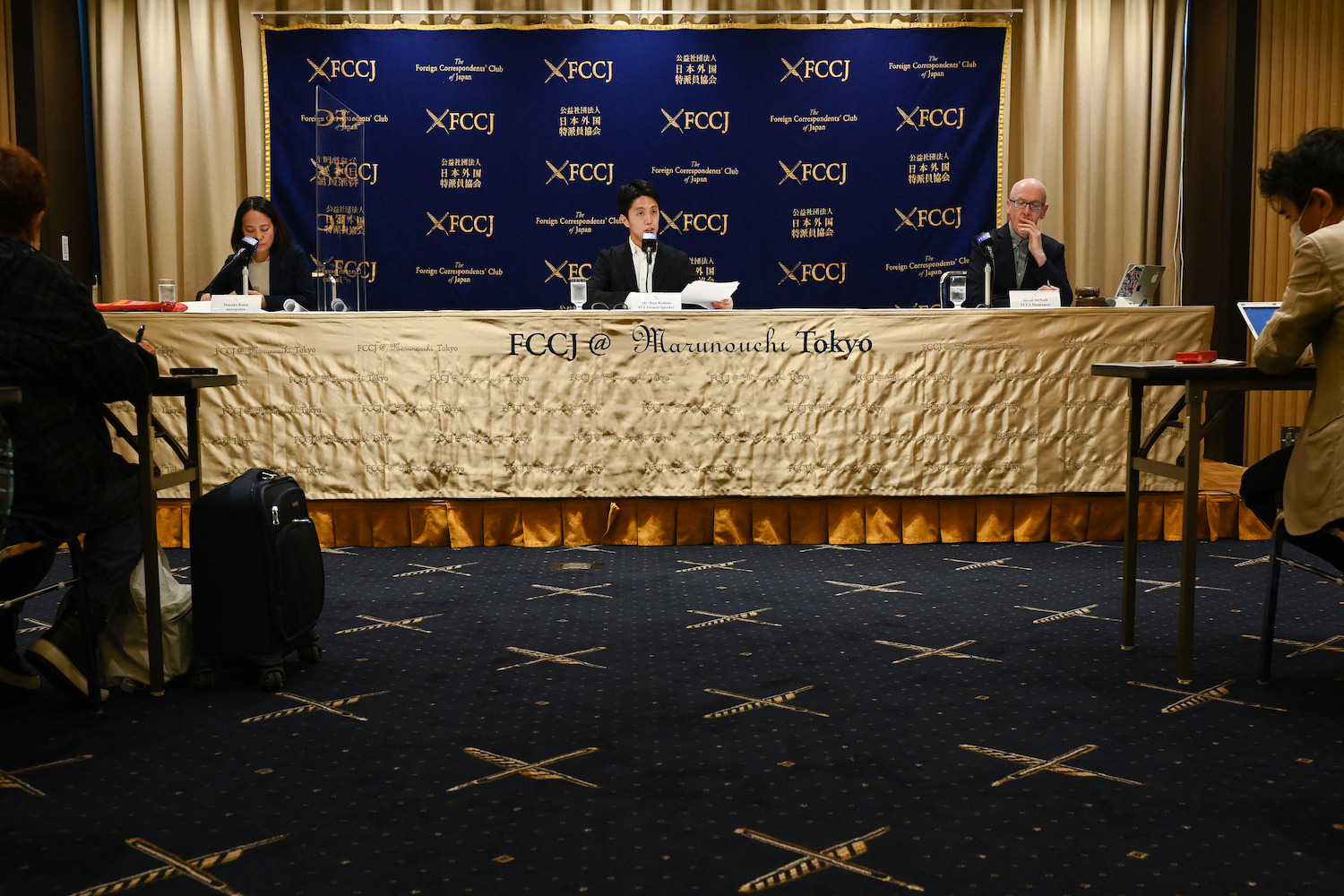By BO BO THEIN & KHAING ZAR AUNG | FRONTIER
YANGON — Dozens of Myanmar journalists from some of the country’s leading news outlets have convened in Yangon to organize a new lobby group against the Telecommunications Law, following the arrest of two more journalists under the law’s defamation provisions last week.
At the Orchid Hotel downtown on Tuesday, those present formed the Myanmar Press Protection Committee to organise a campaign against Section 66(d) of the law, which allows judges to levy jail sentences of up to three years for broadcasting “defamatory” content over the internet.
The committee also resolved to stand in support of U Kyaw Min Swe and ‘British’ Ko Ko Maung, respectively the chief editor and satirist for The Voice newspaper, who are in jail awaiting trial on 66(d) charges.
The pair were accused of injuring the dignity of the military for a satirical column penned in response to a recent film that glorified the exploits of the Myanmar Armed Forces. Both men will face their next hearing in Bahan Township on Thursday.
Support more independent journalism like this. Sign up to be a Frontier member.
“We will go to the court [on Thursday] and encourage the journalists from the The Voice,” said Ko Htet Hkaung Lin, a senior journalist at Myanmar Now and member of the committee.
The committee also inaugurated a public campaign at the meeting, asking journalists to wear armbands with a slogan demanding press freedom while working over the coming 10 days.
In the week ahead, the group will organise a petition campaign calling for the abolition of Section 66(d) to be sent to political and military leaders in Nay Pyi Taw.
Promulgated in 2013, defamation cases under the Telecommunications Law have surged over the last year, with a total of 61 cases since the current government took office at the end of March 2016.
Nine of those cases have been directed against local media workers and editors. By contrast, only seven cases were brought under the previous government.
Despite pressure from media outlets and civil society groups, lawmakers and government ministers have been reluctant to scrap the law.
Pyithu Hluttaw Speaker U Win Myint told lawmakers last December that maintaining the law was necessary to protect social cohesion.
Daw Nu Nu Yin, a permanent secretary at the Attorney-General’s office in Nay Pyi Taw, told media Sunday that the law was being amended to permit bail applications.
It was unclear, however, when the revised law would be referred to the Union parliament for consideration.
Additional reporting by Nyan Hlaing Lynn in Nay Pyi Taw.


